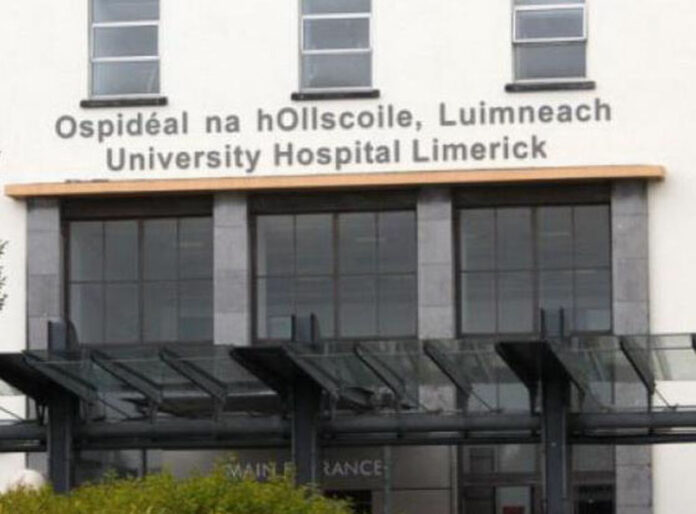THE capacity situation in University Hospital Limerick (UHL) remains “precarious”, despite a reduction in the 14-day incidence of Covid-19 throughout the Mid-West.
The UL Hospitals’ Group has pleaded with Clare people to continue following public health guidelines as the acuity of patients remains high, with their critical care surge plan activated and a significant number of patients on inpatient wards who require respiratory support.
The group has also warned even when Covid-19 patients are delisted, they require a significantly longer hospital stay for support and rehabilitation compared to non Covid-19 patients.
This come as official statistics show the 14-day incidence of the virus in the Banner has fallen from 536% last week to 322% this week, which is now the fifth lowest in the country.
Interestingly, the 14-day incidence rate in Tipperary at 553% is now higher than Clare but is much lower than Limerick, which stands at 853%.
According to figures produced by the Health Protection Surveillance Centre, there were 322 new cases of Covid-19 in Clare, 853 in Limerick and 553 in Tipperary from January 19 to February 1.
The five-day moving average from January 19 to February 1 is 46 in Limerick, 13 in Clare and 27 in Tipperary.
On January 31, there were 4,254 confirmed cases of Covid-19 in Clare, 9,472 in Limerick and 4,393 in Tipperary.
There are currently 387 staff across the UL Hospitals’ Group unavailable for work due to Covid-19. This figure includes staff, who have tested positive for Covid-19 either through the workplace or community transmission; those who are close contacts of positive cases and staff who are showing symptoms and who are staying off work in line with the public health guidance in respect of Covid-19.
Various supports are in place to maintain staff health and well being at this difficult time.
Chief Clinical Director, Prof Brian Lenehan acknowledged people across the Mid-West have made enormous sacrifices to drive down rates of community transmission in recent weeks and hospitals are beginning to see the fruits of their efforts in terms of reduced hospitalisations due to Covid-19. However, the situation in hospitals around the country, including in the Mid-West, remains “precarious”.
“While the number of Covid-19 positive inpatients has reduced this does not always mean the patients have recovered and have been discharged from hospital.
“Many have rather been delisted as Covid-19 positive, but require ongoing care and rehabilitation in hospital. The length of stay for Covid-19 patients, in some cases up to 20 days, greatly exceeds the average length of stay for medical patients prior to the pandemic, at 5.3 days in UL Hospitals’ Group.
“The acuity of patients remains high, with our critical care surge plan activated and a significant number of patients on inpatient wards who require respiratory support.
“The group are seeing some positive trends, but the number of Covid-19 patients in hospital and the numbers in critical care exceed anything we experienced during 2020.
“The group remain considerably challenged on staffing. The group are asking the community to sustain their efforts to reduce community transmission so we can continue to operate essential services in UHL, in Ennis and across the group.”
Dan Danaher
East Clare correspondent, Dan Danaher is a journalism graduate of Rathmines and UL. He has won numerous awards for special investigations on health, justice, environment, and reports on news, agriculture, disability, mental health and community.



